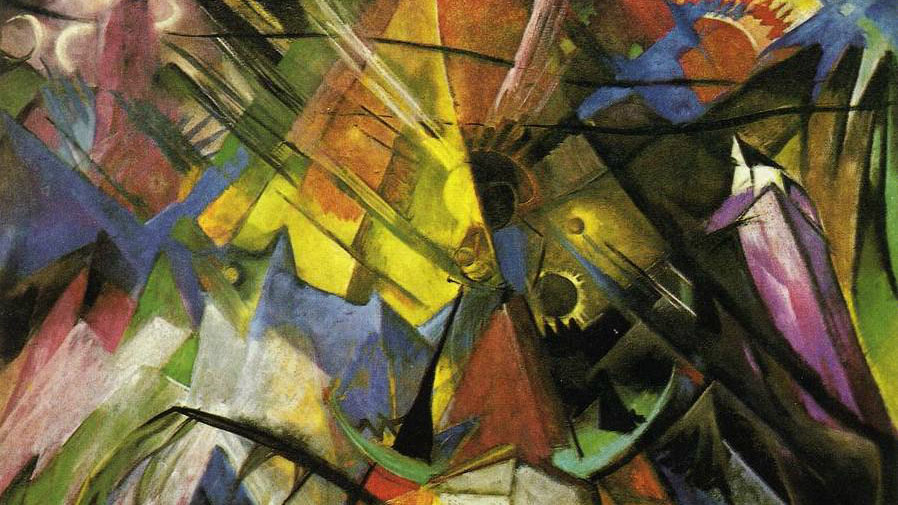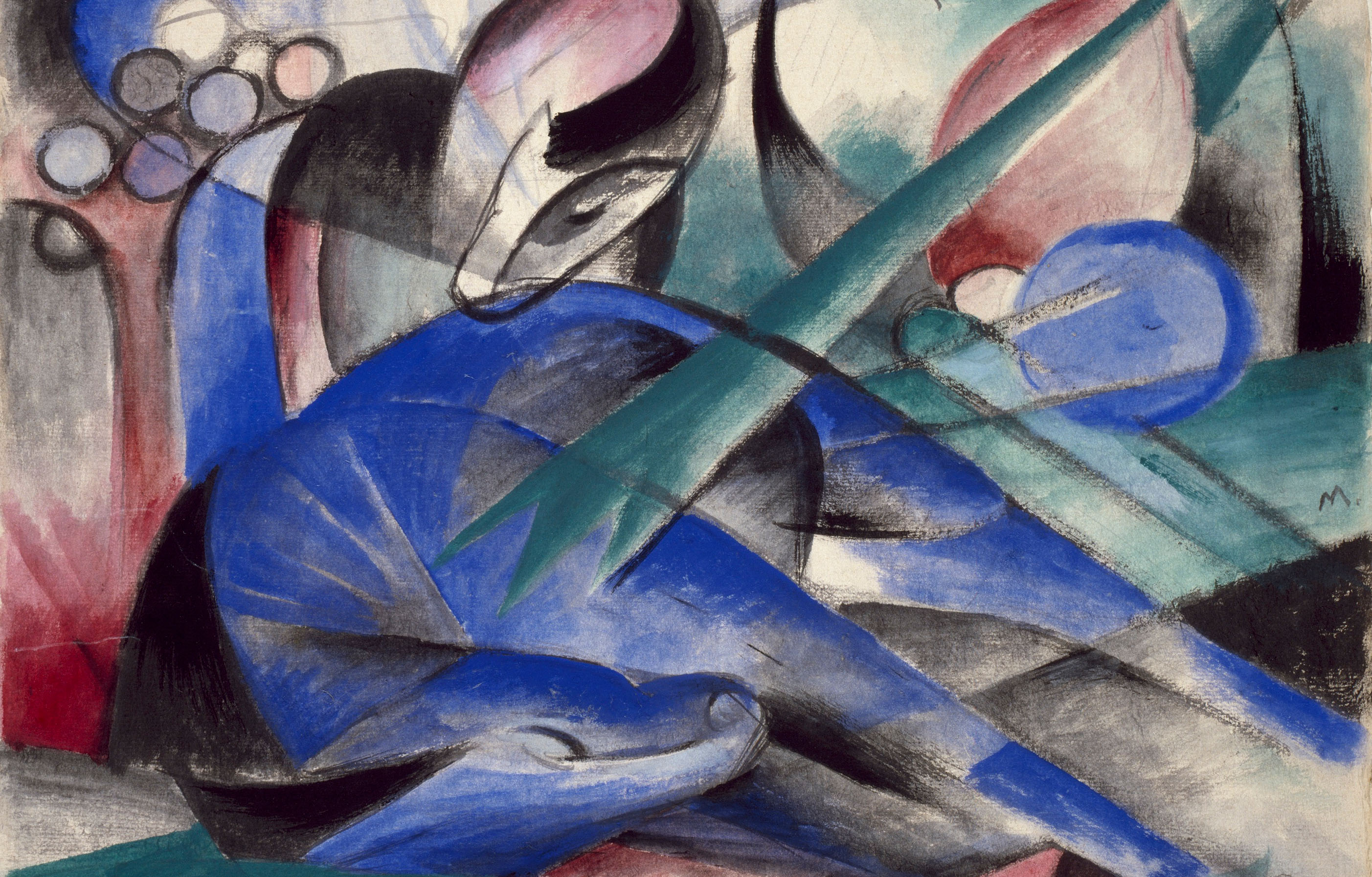
The Lords of the Dreaming are powerful and fey. Those skilled enough in the Dreaming Arts can turn their own souls into conduits through which the Spirit Lords can be made manifest in the natural world. But following such a path requires supreme self-control, for the Lords of the Dreaming are capable of re-shaping your very soul.
SERVANT OF THE DREAMING LORDS
Hit Die: d8
Starting Gold: 5d4 x 10 (125 gp)
Starting Age: Per cleric.
Class Skills (4 + Int modifier per level, x4 at 1st level): Bluff, Concentration, Craft, Decipher Script, Diplomacy, Dreaming Arts, Gather Information, Intimidate, Knowledge (arcana), Knowledge (history), Knowledge (religion), Profession, Sense Motive
Weapon and Armor Proficiencies: A Servant of the Dreaming Lords gains proficiency with all simple weapons and light armor, but not with shields.
| Level | Base Attack Bonus | Fort Save | Ref Save | Will save | Special| Maximum Spirit Circle |
|
|---|---|---|---|---|---|---|
| 1st | +0 | +2 | +0 | +2 | Dream Pact (1 pact) | 1st |
| 2nd | +1 | +3 | +0 | +3 | Lesser Pact (1 ability) | 1st |
| 3rd | +2 | +3 | +1 | +3 | 2nd | |
| 4th | +3 | +4 | +1 | +4 | Pact Ability | 2nd |
| 5th | +3 | +4 | +1 | +4 | Lesser Pact (2 abilities) | 3rd |
| 6th | +4 | +5 | +2 | +5 | Pact Ability | 3rd |
| 7th | +5 | +5 | +2 | +5 | 4th | |
| 8th | +6/+1 | +6 | +2 | +6 | Dream Pact (2 pacts) | 4th |
| 9th | +6/+1 | +6 | +3 | +6 | Pact Ability | 4th |
| 10th | +7/+2 | +7 | +3 | +7 | Lesser Pact (3 abilities) | 5th |
| 11th | +8/+3 | +7 | +3 | +7 | Pact Ability | 5th |
| 12th | +9/+4 | +8 | +4 | +8 | 6th | |
| 13th | +9/+4 | +8 | +4 | +8 | Pact Ability | 6th |
| 14th | +10/+5 | +9 | +4 | +9 | Dream Pact (3 pacts) | 6th |
| 15th | +11/+6/+1 | +9 | +5 | +9 | 7th | |
| 16th | +12/+7/+2 | +10 | +5 | +10 | Lesser Pact (4 abilities) | 7th |
| 17th | +12/+7/+2 | +10 | +5 | +10 | 8th | |
| 18th | +13/+8/+3 | +11 | +6 | +11 | Pact Ability | 8th |
| 19th | +14/+9/+4 | +11 | +6 | +11 | Pact Ability | 8th |
| 20th | +15/+10/+5 | +12 | +6 | +12 | Dream Pact (4 pacts), Lesser Pact (5 abilities) | 8th |
Dream Pacts (Su): Your affinity for the Dreaming allows you to contact a Spirit Lord and form a mystical pact with them, shaping yourself into a conduit through which the Spirit Lord can become manifest within the natural world. At 1st level you can make a pact with one Spirit Lord at a time. At higher levels, you can form and maintain pacts with multiple Spirit Lords simultaneously (as shown on the class abilities table), although you must complete the pact ritual for each Spirit Lord separately.
To contact a Spirit Lord you must enter a dreaming trance by making a successful Dreaming Arts check (DC 10 + the lord’s spirit circle). You remain within the trance for at least 1 minute, during which time you are effectively unconscious. You can exit a trance at any time as a free action, but if you do so the contact automatically fails.
During the dreaming trance, if you succeed on your Dreaming Arts check, you travel through the Dreaming until you reach the Spirit Lord you are contacting. (This journey may either by physical, metaphorical, or even psychological – such is the nature of the Dreaming.)
Now that you are in contact with the Spirit Lord, you may make a pact check (1d20 + your class level + your Charisma modifier). This process normally takes 1 minute of time in the natural world, although you can choose to attempt a rushed pact check as a full-round action at a -10 penalty. The DC for this check is listed in the description of each Spirit Lord (see below).
If you choose not to attempt the pact check, the conduit between the Dreaming and the natural world is not formed and you automatically awaken from your dreaming trance. If you attempt the pact check, however, you gain the powers granted by the Spirit Lord for 24 hours, whether you succeed on the check or not. You have no ability to cancel the conduit which you have formed. (However, the conduit can be suppressed in the presence of an antimagic field or similar effect.)
If you succeed on the pact check, you have formed a good pact: The Spirit Lord has no influence over your actions or personality.
If you fail the pact check, you are deemed to have made a poor pact: The Spirit Lord’s presence influences your personality and it can even force you to perform or refrain form certain actions. If you are conscious and free-willed, and you encounter a situation in which you cannot or will not refrain from a prohibited action or perform a required one, you suffer a cumulative -1 penalty on attack rolls, saving throws, and checks until the Spirit Lord leaves you.
As long as a Spirit Lord is manifesting itself through you, you display a specific physical sign of its presence (as described in its entry). This sign is real, not an illusory or shapechanging effect. You can hide a sign through mundane means, magical means, or through the use of the suppress sign ability (see below).
The Difficulty Class for any saving throw made against a supernatural power granted by a Spirit Lord is 10 + ½ your class level + your Charisma modifier.
Lesser Pacts (Su): There are also many lesser spirits which are born of the Dreaming. These spirits, known as rivera, flit between the Dreaming and the natural world. Some believe that these spirits – inhabiting the rocks and trees and houses and cobblestones – are, at a fundamental level, what binds the Dreaming and the natural world together.
Whatever the truth may be, your connection to the Spirit Lords grants you some dominion over the rivera. Beginning at 2nd level, as long as you have formed a pact with at least one Spirit Lord, you can choose one ability from the following list as a manifestation of your control over the spirit world:
- +5 hit points
- energy resistance 5 (acid, cold, electricity, fire, or sonic)
- +1 insight bonus on saving throws
- damage reduction 1/–
- +1 insight bonus to Armor Class
- +1 insight bonus on attack rolls
- +1 insight bonus on damage rolls
- +2 insight bonus on initiative checks
- +2 insight bonus to skill checks (choose one skill)
As you gain higher levels, you can form multiple lesser pacts. You can choose each ability more than once. The effects stack.
Pact Ability: At 4th, 6th, 9th, 11th, 13th, 18th, and 19th level you can select a pact ability from the list below. You can also select the Delay Supernatural Ability, Empower Supernatural Ability, Enlarge Supernatural Ability, Extend Supernatural Ability, Maximize Supernatural Ability, and Widen Supernatural Ability feats as pact abilities.
Break Conduit: Once per day you can attempt to break the conduit of a single Spirit Lord to which you are bound. To do so, you must once again enter a dreaming trance and repeat the entire ritual of contact. If you succeed on the new pact check, the conduit has been broken and the Spirit Lord is forced to leave you before it normally would. Regardless of the success or failure of the attempt, you take a -10 penalty on your next pact check with any Spirit Lord and also apply the same penalty on the next pact check you make with the Spirit Lord you broke faith with. This pact ability can be selected more than once, allowing you to make the attempt one additional time each day each time you select it.
Empowered Conduit: Your effective class level is 2 higher than normal for the purpose of determining the maximum circle of Spirit Lords you can contact and form pacts with. (This does not increase your effective class level for any other reason.)
Favored Lord: You have formed a deep and intimate connection with one of the Spirit Lords you have made a pact with. Your effective class level increases by 1 when you use the powers granted by your favored lord. (You can select this pact ability more than once. Each time you select it, it applies to a different Spirit Lord.)
Favored Lord, Greater: The DC of each supernatural ability granted by your favored lord increases by 1. (You can select this pact ability once for each favored lord you possess.)
Favored Lord, Power of the: You can activate the abilities granted by your favored lord once every 4 rounds instead of once every 5 rounds. (You can select this pact ability once for each favored lord you possess.)
Rapid Contact: Your greater affinity for the Dreaming allows you to contact Spirit Lords very quickly. Once per day, you can contact a Spirit Lord as a full-round action (instead of the normal 1 minute).
Skilled Pact Making: You gain +4 bonus on pact checks.
Suppress Sign (Ex): At 2nd level and higher, you can choose to reveal or suppress the physical sign of a Spirit Lord bound to you by a good pact as a swift action. This ability cannot be used to suppress the physical sign of a Spirit Lord with whom you have formed a poor pact.
DREAM PACT FEATS
These feats allow characters to form limited pacts with Lords of the Dreaming without fully committing to the Servant of the Dreaming Lords class.
DREAMING PACT
You are able to contact Spirit Lords and form pacts with them.
Prerequisites: Dreaming Arts 1 rank
Benefits: You can form pacts with Spirit Lords as if you were a 1st-level Servant of the Dreaming Lords. Thus, only Spirit Lords of the 1st Circle are available to you, and you can only bind one Spirit Lord at a time. Furthermore, unlike a true Servant of the Dreaming Lords, you gain only one of the powers granted by the Spirit Lord (determine randomly).
Special: You can select pact abilities as feats.
DREAMING PACT, IMPROVED
You are able to contact and form pacts with more powerful Spirit Lords.
Prerequisites: Dreaming Arts 5 ranks, Dreaming Pact
Benefits: When you form a pact with a Spirit Lord using the Dreaming Pact feat, you do so as if you were a 5th-level Servant of the Dreaming Lords. Thus, you have access to Spirit Lords of the 3rd Circle or lower. However, you can still only bind one Spirit Lord at a time and gain only one power from it.
DREAMING PACT, SKILLED
When you contact and form a pact with a Spirit Lord, you are able to form a more perfect conduit for their manifestation.
Prerequisites: Dreaming Arts 2 ranks, Dreaming Pact
Benefit: When you form a pact with a Spirit Lord using the Dreaming Pact, you gain two of the powers granted by the Spirit Lord instead of one. (The powers are still determined randomly.)
NEW FEATS
These are non-core feats which some of the Spirit Lords grant to those who form pacts with them.
SUPERNATURAL ENHANCEMENT FEATS: Delay Supernatural Ability, Empower Supernatural Ability, Enlarge Supernatural Ability, Extend Supernatural Ability, Maximize Supernatural Ability, and Widen Supernatural Ability feats.
- These feats operate like the metamagic feats of the same name, but affect the user’s supernatural abilities instead of spells.
- Each feat can be used once per day to modify any supernatural ability possessed by the user.
- Each feat can be taken multiple times, with each additional instance of the feat allowing an additional use per day.
DANCE OF DEATH
Prerequisites: Dex 13, Int 13, Combat Expertise, Dodge, Mobility, Spring Attack, Whirlwind Attack, base attack bonus +8
Benefit: As a full attack action you move up to your speed and make a single melee attack against each creature you pass by (in other words, any creature you can reach with a melee attack at any point during your movement). This movement provokes attacks of opportunity normally. During the dance of death you cannot take any bonus or extra attacks granted by other feats or abilities, and you cannot attack a single creature more than once.
Special: A fighter may select Dance of Death as one of his fighter bonus feats.
SUPERIOR LOW-LIGHT VISION
Your eyes are even more sensitive than normal, granting your improved vision.
Prerequisites: Low-light vision
Benefit: Your eyes have become so sensitive to light that you can see four times as far as a human in starlight, moonlight, torchlight, and similar conditions of low illumination. This replaces your normal low-light vision.
Special: You can take this feat more than once. The effects stack, increasing your low-light vision by the same margin each time. (Thus, if you took this feat twice, you would be able to see six times further than a normal human.)
TWIN SHOT
Prerequisites: Precise Shot, Rapid Reload
Benefit: As a standard action, you can make a single ranged attack against two adjacent targets. Make a single attack roll and apply the result against both targets.
Special: A fighter may select Twin Shot as one of his fighter bonus feats.














